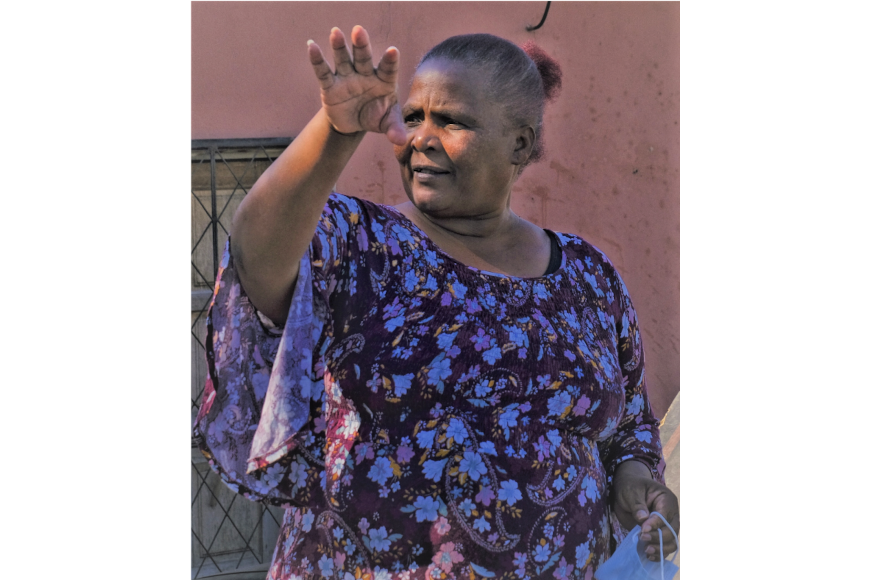The Durban University of Technology’s (DUT’s) Urban Futures Centre (UFC) will be showcasing a community driven exhibition called: “Welbedacht – A beautiful place” at the Sarva Dharma Ashram, 46 Graceland Road, Welbedacht East, Chatsworth, Durban on Sunday, 27th March 2022.
The Urban Futures Centre at DUT (UFC@DUT) is based in the Faculty of Engineering and Built Environment, headed by Professor Monique Marks. It serves as the central node for a network of projects, institutions, practitioners and academics involved in the future of cities locally and internationally. Their work focuses on improving the quality of life of the most marginal in our society through engaged research.
The Welbedacht East area is situated in the south of Durban and the area was part of the first phase of one of the largest slum clearance projects in the history of the eThekwini Municipality, and is regarded as a badly located project on the periphery of the city, with long commuting distances to work, no income opportunities within the area, and little state provided social facilities
Explaining more on the background of the Welbedacht community project, Dr Sogen Moodley said that the exhibition was an idea emerging from the research process, with the intention to celebrate the uniqueness of Welbedacht as a diverse and socially inclusive place, despite its marginal geographic location.
He relayed that the event is aimed to be an ideal launch-pad for the eThekwini Municipality’s Local History Museum to share ideas on the roll-out a potential programme for a larger documentation process of oral histories/training programmes that can help in this process, and for other eThekwini municipal departments present to share ideas on how to make Welbedacht a more beautiful place.
He expressed that the social unrest in KwaZulu-Natal in July 2021 prompted concern around the gains made post-apartheid around social cohesion and building non-racialism. In participating in a national dialogue with the State President as a respondent to panelists as part of the Nelson Mandela Day Inaugural Lecture, Prof Monique Marks from the Urban Futures Centre proposed the idea of “platforms of truth” for open and honest conversations around dealing with deep-seated prejudices and the need for more active embracing of diversity and difference.
In actioning this initiative, an evening engagement session with the Welbedacht East community was held in August 2021.
He stated that at the meeting, community members spoke passionately about their connection with Welbedacht which they identified as being a beautiful place. They bemoaned the fact that the physical and spatial marginalisation of this community has been extended to their history being hidden.
“As our team walked through the meeting space, we observed how children from the neighbourhood moved freely between the properties, which had no high fences, and in fact allowed high levels of permeability probably developed out of a history of connectedness with neighbours. We listened to stories of acceptance from foreign nationals, to testimonies of an old women of Indian extraction who had been the primary caregiver after school to a neighbour’s black African child,” he added.
Dr Moodley conveyed that the community spoke at length about how racial integration was part of their way life and part of their proud legacy.
“One important request emerged from the meeting – that the university plays a role in ensuring that Welbedacht was not forgotten but the story of its community be heard, and its history be recorded and even celebrated through articles, photography or other ways of remembering,” he said.
He indicated that in terms of this particular research project, it is against this background and interest from the community, that the research was borne.
“What is interesting is that the research topic has been identified by the participants. After further engagement with the community through the support of Expanding Minds Alleviating Poverty (EMAP) a local active NGO, there has been enthusiasm to engage in participatory action research, allowing the voices and stories from the community to drive the research,” he added.
Dr Moodley reiterated that in this case study, which saw the Welbedacht East project conceptualised exactly 21 years ago, there is a unique opportunity to assess how residents have responded to the state resettlement project and to explore how over a period of time communities are able to transform resettlement spaces into a place they call home.
He further communicated that the overall research aim is to explore how the community make sense of Welbedacht as a place and their role in the place-making process.
Dr Moodley added that progress made to date by the Research Team in the project since inception in August 2021, were that they had collected the oral histories of eight community members, identified by local community leadership, which have been transcribed and vetted by each of the participants.
“Commissioned a set of high-quality photographs as part of our photo-essay collection, including photos of key landmarks and interviewees. Initiated a process of facilitating access for the community to better engage with the eThekwini Municipality departments,” said Dr Moodley.
He expressed that the Urban Futures Centre is committed to doing engaged research, where research participants are co-creators of knowledge and the co-beneficiaries of the research.
“As such, the community participants have recognised the importance celebrating their community and changing the ongoing narrative of Welbedacht as an impoverished place where residents live without hope. Whilst they appreciate the value of a published academic research paper, they also wanted to tell the untold stories of community vibrancy and solidarity and not just racial tolerance but unity and cohesion,” she commented.
He conveyed that the community participants have suggested that they will showcase a community mini-exhibition and cultural celebration of their photographs and their stories.
For more information, contact Dr Sogen Moodley on sogendrenm@dut.ac.za or Prof Monique Marks on moniquem@dut.ac.za
Pictured: Pastor Vasie Pillay, Welbedacht community activist, and co-organiser of the exhibition.
Waheeda Peters


